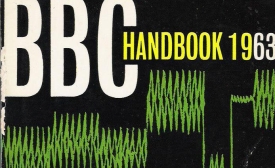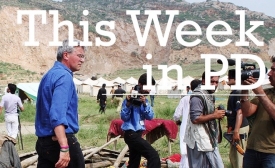bbc

The BBC needs to get with the times, says former VOA Director David S. Jackson.
Last December, Peter Horrocks, the BBC World Service’s former director, warned that the West was losing the “information war” with Moscow as the old Cold War foe pumped out wave after wave of pro-Kremlin propaganda on its rapidly expanding radio, TV and online platforms.

At the center of this week's public diplomacy news is the strength of the United Kingdom's soft power in today's globalized world.
In a move that could plunge the corporation into confrontation with the North Korean dictator, the World Service is examining how to set up a special news channel that will get around Pyongyang’s ban on foreign media broadcasts.
For all the money thrown at Clarkson and his co-hosts, the enormous international success of the show had made it extremely profitable for the public-service broadcaster. And more importantly, Top Gear's global audience also provided something intangible: Soft power.
Despite its detractors, Eurovision remains the single largest televised annual cultural event in the world. Of course, the UK doesn't exactly need the soft power nor is it lacking in cultural power outside Eurovision; Ed Sheeran, Sam Smith and BBC News attest to that.
House Of Cards author Michael Dobbs has described the BBC as "arguably this country's strongest cultural brand". (...) "It has an impact in every corner of the globe. It is one of the prime weapon systems in our arsenal of soft power that will grow increasingly important in the years of uncertainty that lie ahead."
The story of the BBC in the 70s and 80s is that of Life on Earth, Grange Hill and EastEnders. But, as newly opened archives reveal, it is also a tale of bitter rows and repeated government assaults – not least from the hostile new prime minister, Margaret Thatcher. Jean Seaton shares her discoveries.







